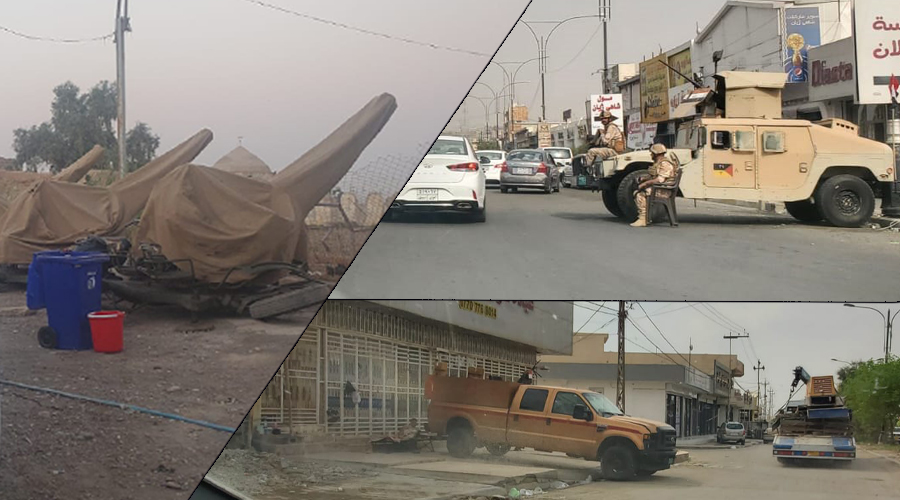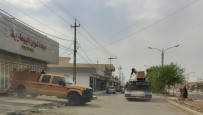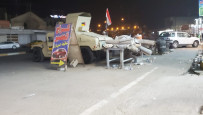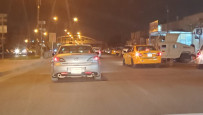Several military vehicles with heavy machine guns were lately deployed in in several locations inside the center of Kirkuk while a commander at the Joint Operations Command headquarters in Kirkuk affirms its "just precautionary security measures."
Military vehicles with DShK (Dushka) heavy infantry machine guns were deployed during the past few days on Kirkuk Citadel, and several residential areas. The scene is weird as the Iraqi local and federal police are in charge of city center security while the Iraqi army units are deployed at the outskirts.
An officer of Kirkuk police anonymously told KirkukNow that "the deployment of forces in the city center is a security and military measure ... it is not a new thing and they had previously been present in the city."
The source refused to comment about the deployment military vehicle with heavy weapons on the Kirkuk citadel.
The deployment of heavy weapons for the Iraqi army comes at a time when the Archelogy Protection Police and the Emergency Police are supervising the security file of the historic Kirkuk Citadel.
A source in the Joint Operations Command in Kirkuk, which manages the security file for the entire province, told (KirkukNow), "I want to assure you that there is nothing specific and that the forces have not been deployed in intensity, it’s just security and military precautions."
"The forces are not present in a specific area, but rather a military vehicle or detachment has been deployed in several points and locations inside the city. The aim is for the citizens to feel safe and secure and to cooperate with the security forces to protect the city, as we are seeing now."
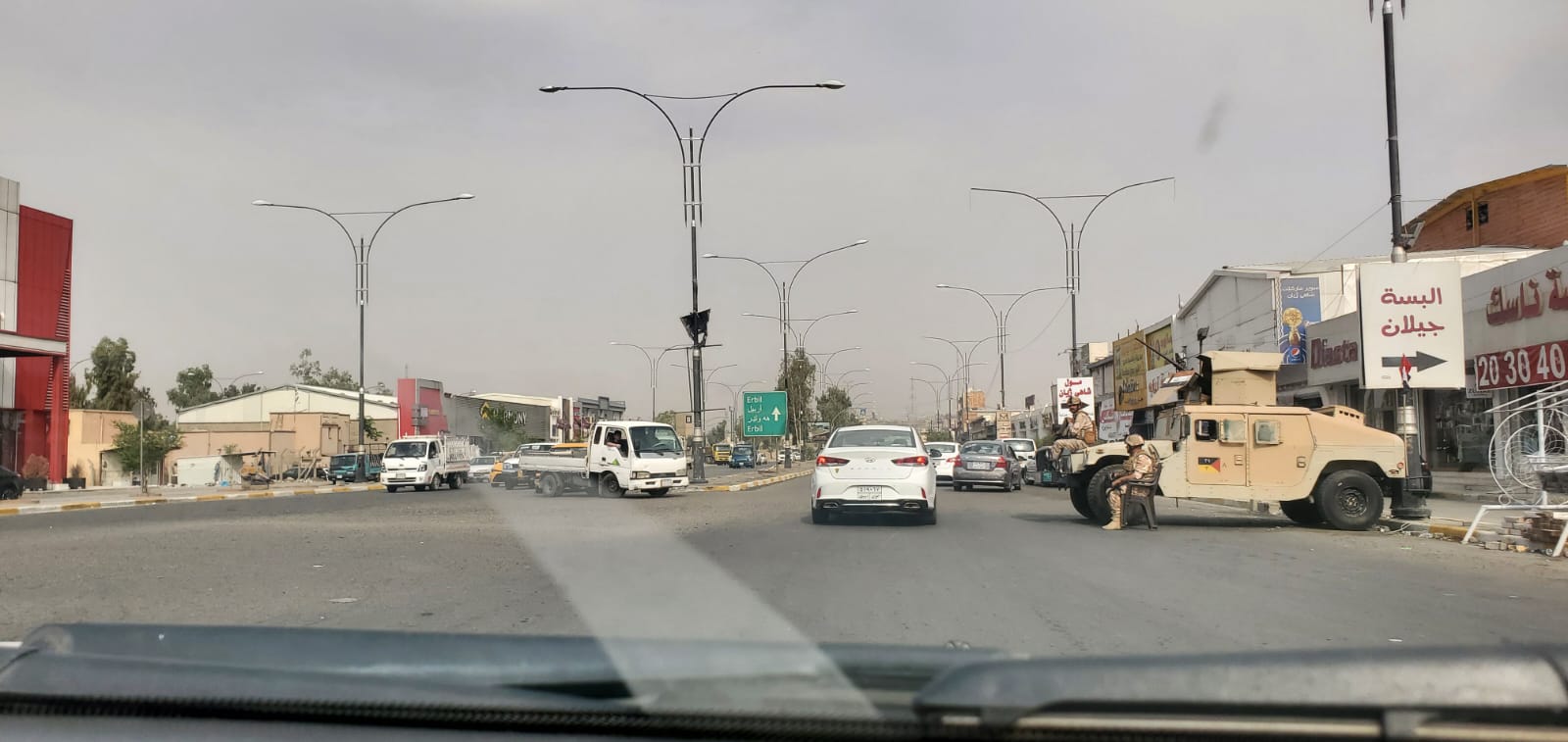
The Kurds held a referendum for independence in the Kurdistan Region of Iraq KRI and the disputed territories on September 25, 2017, was supported by 92% of the voters; However, 21 days later, on October 16 of the same year, Iraqi forces ousted the Kurdish forces from Kirkuk and all the disputed territories.
Iraqi government called on the Kurds for dialogue and urged them to cancel the results. Iraqi troops ousted Kurdish troops in October 2017 upon request of Iraqi parliament to deploy federal army in the disputed territories the Kurds were controlling, part of it since fall of Saddam regime in 2003 and others following the so-called Islamic State ISIS control of one third of Iraq in 2014.
The results of the referendum were suspended under pressure from Baghdad.
Kurds, the fourth-largest ethnic group in the Middle East, have never obtained a permanent nation state. Iraqi Kurds, make up an estimated 15- 20% of the population, have faced decades of repression before acquiring semi-autonomy in 1991.
These developments coincide with the approaching anniversary of the events of October 16, when the Iraqi forces redeployed in the disputed areas in an operation called (imposing the law) during a period when Haider al-Abadi was the prime minister, after which the Peshmerga forces withdrew from those areas, following the deterioration of relations between Baghdad and Erbil because of the independence referendum in the Kurdistan Region.
The northern, oil-rich province of Kirkuk, located 238 kilometers north of Baghdad, is an ethnically mixed province for 1.7 million Aras, Kurds, and Turkmens. It has long been at the center of disputed territories between Baghdad and Erbil.
Currently, the Iraqi army, local and federal police, Brigade 61 of Special Forces along with Shiite paramilitary of Popular Mobilization Forces PMF, are under Kirkuk joint operations’ command, an umbrella for the security forces running the security of Kirkuk province.

